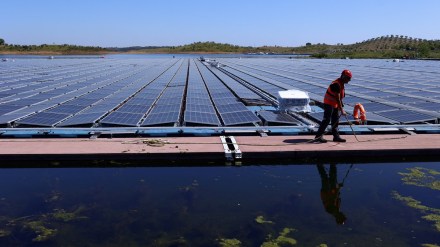India has geared up to host government officials and industry players from across the globe to hold multilateral discussions on energy security and transition, as the India Energy Week 2024 starts here today (Tuesday).
The four-day event that will run till February 9 will see 35,000 attendees, 350 exhibitors, 400 speakers and over 4,000 delegates, from over 100 countries, giving business leaders, policymakers and energy pioneers to collaborate, discover new opportunities and strengthen partnerships.
Major dicussions will include the impact of Red Sea tensions, tighter sanctions, and the demand-supply dynamics after rising geopolitical tensions and supply cuts have governed a volatile trajectory for crude oil prices lately.
Haithan Al Ghais, secretary general of the Organisation of Petroleum Exporting Countries will represent the top oil countries and is likely to address the gathering on how the global oil market is seen emerging and what lies ahead.
Furthermore, Prime Minister Narendra Modi will hold a roundtable with global oil and gas CEOs and experts. The PM will also inaugrate and lay the foundation stone of projects worth over Rs 1,330 crore during the India Energy Week.
The conference is set to bring together the entire energy value chain, and aspire serve as a catalyst for India’s energy transition goals. Other prominent speakers at the conference include petroleum ministers from Libya, Nigeria, Sudan and energy ministers from Ghana, Djibouti and Sri Lanka.
The country’s oil minister Hardeep Singh Puri will also chair multiple conferences and sessions around energy transition, renewable energy, and global energy security.
Moreover, the conference an be a step further to resolve issues in global trade especially with Russia. The country’s oil imports have dropped significantly over the last two months on account of narrowing discount by the latter. Imposition of US sanctions on Sun Ship Management, whose vessels have been largely involved in the transport of Russian Sokol crude to India has become yet another reason for a drop in Russian oil imports.
Russian oil imports to the country stood at 1.5 million barrels a day, down to 31% in January from 43% in June 2023, data from market intelligence firm Kpler showed. “The Sokol battle between Rosneft and IOC is gradually becoming a principled standoff,” said Viktor Katona, lead crude analyst at Kpler.
He noted that another tanker starting to move from Singapore, and interestingly enough the Seagull is headed towards Visakhapatnam after the Jaguar tanker sailed towards Vadinar.
“So it very much seems as if Rosneft wants to show IOC that it has other buyers in India – first it opted for its own equity option, Nayara Energy, now it went with BPCL,” Katona said.
